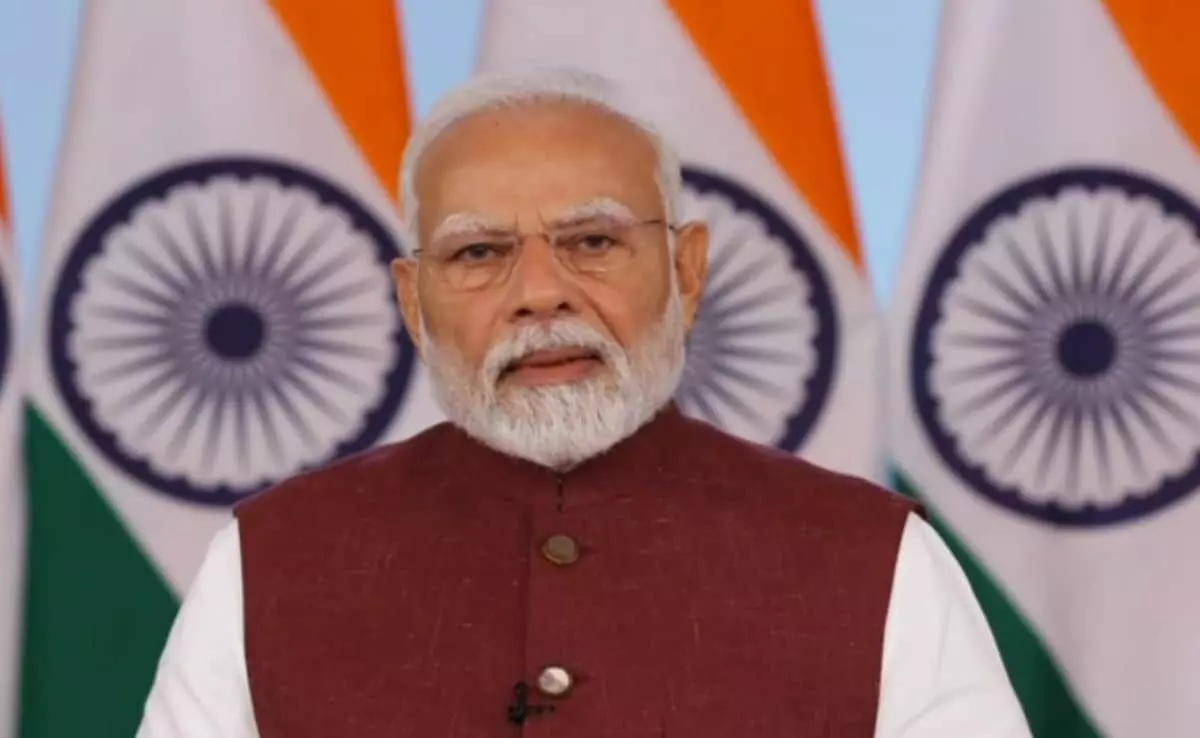PM Modi Presents Op Sindoor as India’s Monroe Doctrine Moment

In 1823, the Monroe Doctrine established the US as the ultimate authority in the Western Hemisphere, declaring any attempt by a European power to interfere with any Western Hemisphere nation would be considered a hostile act against the US. The Operation Sindoor could very well be India’s very own Monroe Doctrine moment.
Operation Sindoor is nothing short of India’s war cry against global terrorism network, which, the nation realizes, begins next door, in Pakistan. With Prime Minister Narendra Modi’s May 12 address to the nation at 8.00 PM, it is firmly established that India is no longer content with being a rising power. It has risen and the world needs to make peace with the new world order!
The decisive action taken by the government of India, to avenge the April 22 Pahalgam massacre, in which 26 Hindu men were killed in cold blood, has marked a significant shift in India’s attitude towards national security and redefined its role on the global stage.
Operation Sindoor wasn’t just a retaliatory step, it was a giant leap in India’s transformed defense policy. A leap that was emphasized by PM Modi himself, in his May 12 address, where he said, “On May 7, the whole world saw our resolve turn into action.” The Operation sent advanced weaponry including Rafale Jets, equipped with SCALP missiles and AASM Hammer bomb, to take out terror camps across nine locations in PoJK and Pakistan. Major locations in Sialkot, Muzaffarabad, Bhimber, Bahawalpur and Muridke were destroyed. The targeted attacks, sent more than 100 terrorists, belonging to outfits like LeT, HM, and JeM, on way to meet their maker.
PM Modi reiterated India’s redefined diplomatic stance when he said, “Terror and talks won’t go together.” His declaration, “Pakistan’s nuclear blackmail will not work anymore,” also emphasized upon India’s firm stand against nuclear intimidation. India’s overall reaction to Pahalgam massacre didn’t fail to take into account the long history of Pakistan’s anti-India terror policy. But this time, India’s response went beyond military action. It began with suspension of the Indus Waters Treaty (IWT), something which had never been initiated, despite both India and Pakistan having engaged in at least 4 full-scale wars since India’s independence. The India under PM Modi is in no mood to tolerate state-sponsored terrorism and the world heard it loud and clear!
One more thing that Operation Sindoor has redefined is India’s position vis-à-vis global geopolitics. Taking a decisive action against Pakistan and its terror network, India proved that it was the responsible power in the subcontinent, perhaps, more responsible than China. The move has also reiterated India’s commitment to uphold international norms while protecting its own citizens from outside threats.
With Operation Sindoor, India has not just addressed all the immediate threats to its safety and sovereignty, but has also added a new leaf to the global book on counter-terrorism efforts. All this has been achieved through military precision, firm diplomacy, and rejecting intimidation of any kind. As PM Modi signified, the world watched India’s resolve transform into action in the face of tragic adversity.
